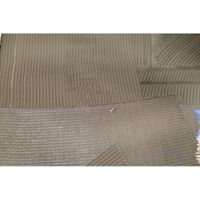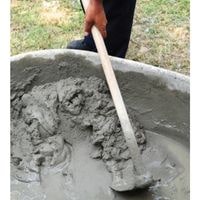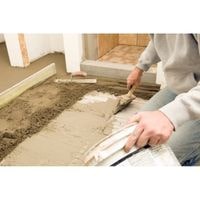How long does thinset take to dry. When it comes to home improvement projects, impatiently ever gets the best results in the end.
To make sure that your tiling job looks immaculate once it’s complete you’ll need to plan your grouting and walking around on the floor beforehand.
You see, in order for this to happen, you’ll want to let your thin-set mortar set first so that all of your completed tiles are structurally sound before anyone gets too close or steps on them.
How long does thinset take to dry

Some of the most popular types of mortar include cement and lime mortars. You may also hear dry-set mortar referred to as a “thin set”.
It is used to bind natural or manufactured stone, cement, glass, and tile to surfaces such as plywood subfloors.
For example, applying this type of mortar will secure tiles quickly in place without the need for messy adhesives. It usually takes 24-48 hours for the mortar to cure.
The time required for thinset mortar to cure
Curing and drying are related but they are not the same thing. The mortar needs to be kept wet for 36 to 48 hours after it has been laid to help achieve a good cure.
This means that while mortar can dry in as few as 12 hours when the weather is warm if the outside air is dry and warm, you’ll need to wait at least 48 hours before applying a second coat.
Keep this time frame in mind when building your project because without proper curing your joint won’t last long.
In terms of how long it takes mortar to cure, it reaches about 60% of its final compressive strength 24 hours after the second coat was applied.
What Factors Affect Curing Time
Some mortars will cure at a faster rate than others. This depends on the environment in which it is used. In this article, we’ll discuss the four major factors that influence the curing time of your mortar.
The Air Flow
When giving your mortar a haircut, keep in mind that it needs to remain hydrated as it cures. When you add too much water, the mortar mixture will dissolve, becoming runny and not completely set.
The circulation of air will also have this effect. For a proper mortar mix, the mix must be wet enough to bind together properly while at the same time being dry enough to be smoothed out nicely after the first layer is applied.
The Temperature
The weather will also play a part in how your mortar cures. If you live somewhere with extremely hot weather, this might cause some problems too.
Remember, mortar can take somewhere between 4.4 degrees Celsius and 37.8 degrees Celsius or 40 degrees Fahrenheit and 100 degrees Fahrenheit to properly cure.
Now the problem is that when it gets really hot outside if your mortar gets exposed to these high temperatures for too long then you could find that it does not dry or cure properly.
This means water evaporates from the mortar mix before it even has the chance to do so resulting in an incomplete mix of chemicals that are needed for a full mortar cure which essentially makes your mortar weak and brittle.
We would suggest covering your freshly laid bricks with lots of shade cover so that they don’t get affected by the heat until it is fully cured instead if possible, especially during those scorching summer months.
The Mortar Mix Ratio

There are a lot of factors regarding the curing process of mortar; firstly let’s look over the consistency of your mortar mix ratio.
What is the ratio of sand to cement that you use? This is what we need to know to adjust the other parameters in our equation.
Something else here will affect how long your mortar takes to cure, and thus it needs us to control that.
As we said above, water would be the one since it figures out the structure of both elements in this case (cement and sand).
You have to put enough water into the mixture so that it doesn’t form clumps while stirring.
In case there isn’t enough water added, it won’t set well (because there will no longer be a chemical reaction).
Too much becomes runnier than expected as well as crumblier if not mixed well with other components in a timely manner.
Humidity Level
One must consider the humidity of the air when using mortar. Every individual will have a different opinion, so it’s mostly just a matter of what works best for you.
You may find that adding additional water or moisture to the mix can help the mortar cure quicker.
Related Guides
